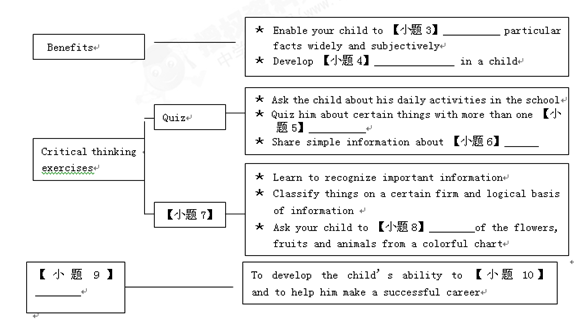Critical thinking means thinking logically and developing an ability to ask questions or ask for evidence for a particular subject. Developing critical thinking skills in a child through the right critical thinking exercises is very important.
Critical thinking develops the ability of subjective analysis of a particular fact. Critical thinking is to evaluate the reason behind a particular fact. All possible viewpoints must be thought about before analyzing a fact, and this develops problem-solving skills in a child.
Here are some exercises you can use to encourage your child to think critically.
Quiz your child. Ask your child about daily activities that he does in the school. Quiz him about certain things that do not have a single correct answer. This will increase his ability to think about the things he’s just learned in class. Keep on telling your child simple information about nature, like the seasons when flowers bloom. You can either ask him questions or just explain to him in a casual way.
Recognize and classify. For critical thinking, your child must learn to recognize important information that is closely connected with the subject. Classification of things on a certain firm and logical basis of information is included in the critical thinking ability. Colorful toys or images can be included in teaching critical thinking. Ask your child to identify the names of the flowers, fruits and animals from a colorful chart.
Critical thinking exercises are not intended to make your child intelligent, but it is about making him successful in his decision-making ability and helping him make a successful career. Although thinking habits are cultivated(培养) in early childhood through exercises, they are indeed helpful for a lifetime.
Title: Critical Thinking Exercises for Children

